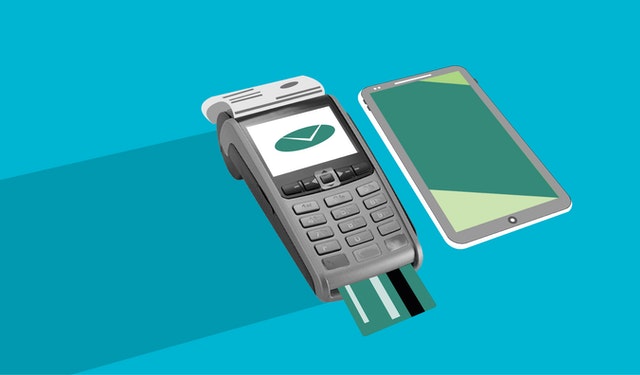
In a business, the merchant is always centric in the commercial chain, from creating requirements to fulfilling the business objective with happy customers. Online payment methods play a significant role when it comes to payments. Mainly, payment gateways are used to integrate and conduct payment-related processes. In return, a nominal fee is charged by gateways, known as the payment processing fee. In order to understand the payment processing fee, it is necessary to understand how the payment network chain works.
In the article given below, we will look deeply into the concept of the payment processing chain and the fee charged to render such services.
What is a Payment Processing Chain?
A payment processing chain is a network of operations primarily between five parties. The 5 parties are as follows:
- Merchant (payment receiver)
- Customer (who makes the payment)
- Issuer Bank (a bank that issues card payment facility for online transactions to customers)
- Payment Gateway Network (technology network that connects all the above for making a transaction)
- Acquiring bank (merchant’s bank or bank that operates on behalf of merchant)
This network of operations between the entities mentioned above happens within a factor of seconds. The issuer bank, acquiring bank, and payment gateway network will charge a fee for every transaction. These charges are categorized with specific names.
- Customer’s bank charges the highest amount of fee, known as the interchange fee.
- Fee charged by the Issuer Bank is called the assessment fee.
- The payment gateway network charges an authorization fee/processing fee
- Acquiring Bank charges are called the discount rate.
All the above charges to the merchant’s account are typically known as Payment Processing Fee. The payment gateway network software is integrated and operated between these five parties, and when a transaction happens online digitally at merchant sale points or customer interfaces like websites and POS, these software integrated applications, in collaboration with various other integrated networks, work for checking the authenticity of the payment sources. This is done by ensuring the safety of transactions with various codes and protocols. The applications also provide services to process the payments for online purchases safely and efficiently through digital payments modes. These are all the services that payment gateway companies such as Zaakpay provide and are paid for. This fee is levied upon merchants and occasionally on customers, depending on the case and type of transaction.
How much Payment Processing Fee is charged?
The payment processing fee typically varies between 0.75% to 3.3% worldwide. In India, it is mostly between 1% to 3%. However, premium services like Forex, international transactions, etc., are charged more based on the type of business calculated risk. The issuer bank considers credit-based transactions to be of the highest risk compared to those based on debit. So, typically Credit Card charges are generally high compared to Debit Card transaction charges.
Depending on the type of transaction, brand value of the payment gateway, and various options in services, merchants should choose a suitable payment gateway network. As the interchange fee is non-negotiable and a fixed charge, merchants are left with options of negotiating on other charges like the assessment fee, authorization fee, and the discount rate. The kind of business risks involved, and credit terms or the service options opted, will clearly determine the merchant’. There will be some fixed and hidden costs that are to be clearly understood before signing for services of a payment gateway company. The offered services need to be transparent enough with clarity of services and payment gateway charges involved. There are very few companies in India operating with this kind of transparency, and Zaakpay is one such provider.
Effect of Payment Processing Fee on your Business
Many businesses fall in the line of non-negotiable payment gateway charges; one of the most crucial aspects is to choose a low charging payment gateway operator.
- If small businesses are operating with low-profit margins due to competition, making room for payment processing fees directly affects the selling cost of the product, making them non-competitive in the market. This affects the sale to a great extent.
- Profit margin is directly affected with high charges of payment processing fee.
- If customer finds a high number of charges involved in various steps of their digital payment transaction, there is a possibility of them directly affecting customer reaction. This makes them more and more confused about their purchase. They may also be inclined towards choosing some other source of purchasing with less transaction cost. This can affect your sales drastically.
- High charges imposed to merchants because premium services are offered are not a viable option today. This can be avoided by opting for suitable service providers charging a nominal fee.
How to Overcome Problems of Payment Processing fees?
- Do not opt for companies charging extremely expensive payment processing fees.
- Select a transparently operating payment gateway company that functions with all the said services and no hidden language about costs.
- Better to opt for companies charging a fixed fee per transaction or percentage fee per transaction.
- Never go with the variable (tiered) type of charges on payment processing fee, as they affect your sales. If the charges differ with different types of operators and vary brand to brand, it will confuse customers while operating with different network operators. This is not a desirable scenario.
- Beware of hidden costs and fixed periodic or sudden implemented costs. Find a reliable payment gateway company that is trusted, like Zaakpay. If they are not transparently understandable, and you notice that after a stipulated period, charges are imposed periodically or suddenly, make sure to opt-out of the deal. This results in the customers losing trust in the payment gateway operator and the merchant.
- In the event of a conflict of interest or a dispute between the merchant and the payment gateway company, the pre-determined terms and conditions should be fair enough to have the proper judgment on solving the issue and should not be biased.
In conclusion, if reducing high risk in transactions is essential to cut down payment processing costs, it is mandatory to choose a processing company with cutting-edge technologies with a perfect network and the best protocols in place with the highest possible security features. This is essential so that the customer could fall in the low-risk band and business can flourish in the future.







